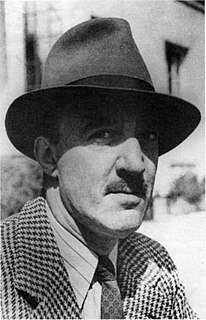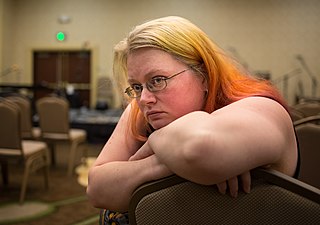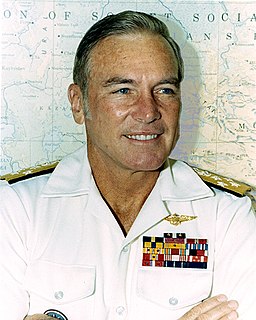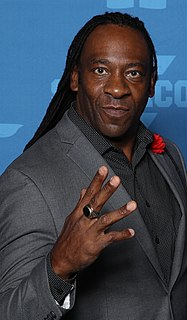Цитата Сэмюэля Тейлора Кольриджа
Первым человеком науки был тот, кто смотрел на вещь не для того, чтобы узнать, дает ли она ему пищу, или кров, или оружие, или инструменты, вооружение или игрушки, но стремился познать ее ради удовлетворения знания.
Связанные цитаты
К этому времени Белла подозревала, что мистер Роксмит ею восхищается. Побудило ли это знание (ибо это было скорее оно, чем подозрение) склонить ее к нему немного больше или немного меньше, чем она сделала сначала; вызвало ли это у нее желание узнать о нем больше, потому ли, что она стремилась установить причину своего недоверия, или потому, что она стремилась избавить его от него; было еще темно к ее собственному сердцу. Но в большинстве случаев он занимал большое количество ее внимания.
Пожалуйста, не делайте ошибку, думая, что «Орикс и Коростель» антинаучны. Наука – это способ познания и инструмент. Как и все способы познания и инструменты, его можно использовать во зло. И его можно купить и продать, и это часто происходит. Но это не плохо само по себе. Как и электричество, оно нейтрально.
Использовать инструменты науки и признать изъян в картезианской двойственности и использовать инструменты науки, чтобы взглянуть на этот вопрос разума и сознания и исследовать его с помощью инструментов науки — вместо того, чтобы говорить, как На протяжении 400 лет существовала традиция, что сознание не является подходящим объектом для изучения наукой.
Вопрос о том, зачем Бог создал вселенную, до сих пор беспокоит думающих людей; но если мы не можем знать почему, мы можем, по крайней мере, знать, что Он создал Свои миры не для удовлетворения какой-то неудовлетворенной потребности в Себе, как человек может построить дом, чтобы укрыться от зимнего холода, или засеять поле кукурузы, чтобы обеспечить его необходимым питанием. Слово «необходимо» совершенно чуждо Богу.
В наш век космических полетов, когда мы используем современные инструменты науки для продвижения в новые области человеческой деятельности, Библия... во всех отношениях остается современной книгой. Наши знания и использование законов природы, которые позволяют нам летать на Луну, также позволяют нам уничтожить нашу родную планету с помощью атомной бомбы. Сама наука не решает вопроса, должны ли мы использовать имеющуюся в нашем распоряжении силу во благо или во зло. Руководящие принципы того, что мы должны делать, даны в нравственном законе Бога.
Достопочтенный Элайджа Мухаммед говорит, что черный мужчина в Америке в течение последних 400 лет был подобен мальчику в доме белого человека, выпрашивая у белого человека работу, еду, одежду и кров. И затем, после того, как белый человек снабдит его всем этим, он разворачивается и получает... имеет наглость злиться на белого человека, когда белый человек пытается контролировать его жизнь.
Он вскинул голову и серьезно посмотрел на нее. — Не могли бы вы, — начал он, затем ему пришлось откашляться. — Можешь ли ты научиться любить меня? он спросил. "С достаточным количеством времени?" Она посмотрела на него с удивлением. Это был первый раз за все время их знакомства, когда она услышала, как он звучал хоть немного нерешительно. «Мне не нужно ничему учиться», — сказала она, прежде чем передумала.






































